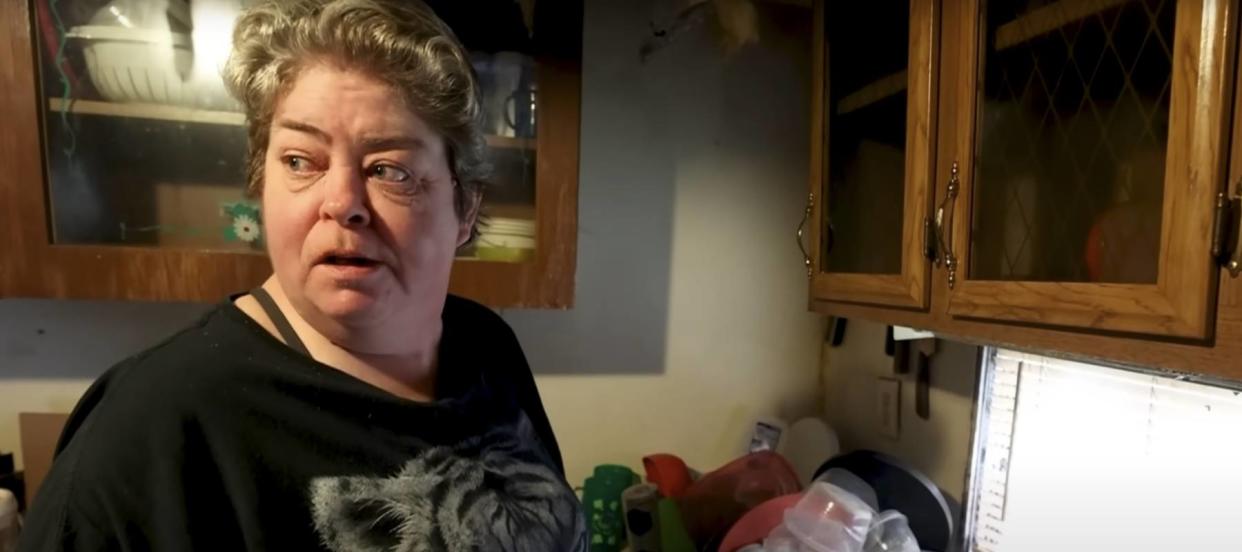'Not even squatters would live here': This Washington woman lived in a run-down mobile home, yet her landlords weren’t obligated to fix anything — all because of a 'loophole' in the state law

Casey Jewell hadn’t been able to use her toilet for months. Not that it mattered anymore, since her water was shut off sometime afterward. Her mobile home north of Vancouver, Washington, also had a broken heater, a busted stove and kitchen cabinets that were on the verge of falling, she told KGW News 8, a local news station based in Portland, Oregon.
The 52-year-old had six large buckets around her small domicile to collect rainwater, thanks to a hole in her kitchen ceiling that never got fixed.
Don't miss
Commercial real estate has beaten the stock market for 25 years — but only the super rich could buy in. Here's how even ordinary investors can become the landlord of Walmart, Whole Foods or Kroger
Cost-of-living in America is still out of control — use these 3 'real assets' to protect your wealth today, no matter what the US Fed does or says
These 5 magic money moves will boost you up America's net worth ladder in 2024 — and you can complete each step within minutes. Here's how
“Nobody should be living in this,“ she said. “Not even squatters would live here.”
But her landlords never fixed anything — even when they raised her rent in February from $925 to $950 — Jewell says.
Legal 'loophole'
One reason that Jewell was unable to get her home fixed is because of what attorney Carl Snodgrass describes as a legal “loophole,“ he explained to KGW News 8.
Normally, landlords in Washington are required to ensure rental properties are fit for human habitation. But the law also says that landlords don’t have to make fixes if the tenants are behind on rent or utilities.
“I can’t believe we’ve created a system that does that,” Snodgrass told in a KGW News 8 follow-up story.
This was unfortunately the situation for Jewell, who says she fell behind on rent during the pandemic. She was on a payment plan, paying an extra $50 a month, in an attempt to catch up. But management also added late fees.
Washington’s legislature was considering a bill that would close this so-called loophole, but it wasn’t heard during the 2024 short session. Rep. Strom Peterson, a Democrat from Edmonds, was one of the bill’s sponsors and told KGW News 8 he’ll bring it forward again next year.
Read more: 'Baby boomers bust': Robert Kiyosaki warns that older Americans will get crushed in the 'biggest bubble in history' — 3 shockproof assets for instant insurance now
Poor housing is common
Jewell isn’t the only American who has experienced this situation. In 2021, 5.2% of U.S. households (6.7 million) were living in “substandard homes,” according to Harvard University’s Joint Center for Housing Studies (JCHS) of Harvard University.
This means that millions of people had been living in homes with several structural issues or lacking basic needs, such as electricity, plumbing or heat. The JCHS adds that the people living in these households tend to have lower incomes, like Jewell, who works at a local grocery store.
According to KGW News 8, citing corporate records, the owners of the mobile home park Jewell resides in are Michael and Denise Werner. The couple certainly doesn’t seem to be living in squalor. They apparently own dozens of mobile home and RV parks across Washington and Oregon. KGW News 8 also found public records showing the Werners’ ownership of a $1.8 million home on the Columbia River, as well as two mansions in Arizona (one was on the market for $7.4 million).
Even with all their money, the Werners have a poor reputation as landlords. In December, a judge ordered they pay $926,500 in penalties for issuing unlawful evictions and shutting off utilities at a different mobile home park. They also allowed a “rat infestation, piles of garbage and feces-smeared bathroom facilities” to fester at this property.
It's possible to get out
Thankfully, after the attention her story received, Jewell was able to move out her squalid mobile home into one with a working toilet, freshly painted walls and working heating and air conditioning in March.
Jewell had repeatedly complained about her poor living conditions, but it wasn’t until she told her story to local media that any action was taken. The Werners say they worked with a non-profit to find her a suitable place to live within the same mobile home park, KGW News 8 reports.
“I got my happy ending,” Jewell told KGW News 8.
Jewell added that she feels lucky and knows that many other people aren’t able to get out of such horrible living situations.
What to read next
Jeff Bezos and Oprah Winfrey invest in this asset to keep their wealth safe— you may want to do the same in 2024
'It's not taxed at all': Warren Buffett shares the 'best investment' you can make when battling rising costs — take advantage today
Car insurance premiums in America are through the roof — and only getting worse. But 5 minutes could have you paying as little as $29/month
This article provides information only and should not be construed as advice. It is provided without warranty of any kind.
